Personal Finance Tips, Tricks and Hacks
Although I am by no means a financial or investment expert, I am an amateur lifehacker — and that includes hacking my personal finances to increase automation, improve security, and maximize rewards points. Over the years, I have picked up several tips, tricks, and best practices which I thought I’d share. None of these techniques is earth-shattering (and some are well known), but I hope that anyone reading this post might pick up at least one new idea to try.
In no particular order, below is a smattering of personal finance hacks.
Set Up Automated Alerts For All of Your Payment Accounts

Conventional wisdom says that you should review your bank and credit card accounts at least once a month for suspicious activity. Years ago, I used to manually compare each credit card receipt to my monthly paper statement to make sure everything matched up. Needless to say, this was quite a laborious (and tedious) process.
Now, instead, what I do is set up alerts for every single one of my credit cards and bank accounts. For example, I will configure my credit card to alert me (by email) of any purchase over $0 (i.e. all purchases). You may think all the alerts would be annoying, but they actually provide great peace of mind and multiple benefits.
- There is no need to reconcile credit card charges once a month against your bill since you have incrementally validated them over the course of the month as they come in.
- If there is any suspicious activity on your account, you will know immediately. At least twice, I have detected fraudulent charges on a credit card via email alerts, and I was able to cancel the card right away in both cases.
- You can search your email history if you need to find a specific charge. Searching this way is often faster than searching your credit card account on your bank’s website, especially if you don’t remember which card you used or the date of the charge. (See the tip immediately below for a related hack.)
Update
I’ve expanded this tip into an entire post. See: Enable Account Activity Alerts to Level Up Your Financial Super Powers
Keep Your Credit Card Charges in a Spreadsheet
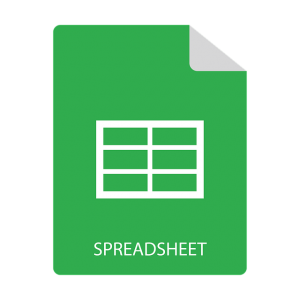
For the cards I most commonly use, each month when my monthly statement is ready, I download the activity for the billing period to a CSV file. I then open the CSV into Microsoft Excel (you could also use Google Sheets) and copy and paste the sheet into a long-running “Credit Card Transactions” workbook. Each sheet (tab) in the workbook corresponds to a specific card and month. This practice has at least three benefits:
- I can quickly eyeball my charges one last time before paying my bill (in full). Since my email alerts don’t notify me of any credits I am expecting, this is a time I can do a final check for those.
- Similar to my tip above about searching for specific charges in my email, I can search this entire workbook for keyword matches (e.g., amounts or store names). In other words, I can search all of my frequently used cards across all of time in ONE SEARCH.
- Workbook searching can be useful for data analysis as well; for example, you might want to generate a summary of the amount due for each of your last 10 water bills (assuming you pay them by credit card). Just search across the workbook for the name of your utility, and Excel will show you the matching rows.
Advanced Tip: You could use a paid service like Tiller to automate the data population of your spreadsheet or workbook.
Update: I stopped using this technique because the process became too cumbersome with the number of credit cards I hold. Also, I’ve found that searching for transactions by email (see the previous section) is sufficient for my needs.
Freeze Your Credit Reports At All 3 Major Credit Agencies
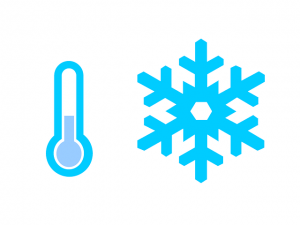
Security breaches are now a sadly routine and frequent occurrence. They put you at much higher risk of fraud, including identity theft.
Freezing your credit report at TransUnion, Equifax, and Experian is the best way to minimize the risk (as it prevents criminals from opening new accounts in your name). As a result of the Equifax breach and subsequent federal legislation, it is now much easier — and FREE — to freeze your reports.
You can place, remove or temporarily lift a freeze via the web for each agency (whereas before each of those activities was fee-based and required phone calls). Below are the deep links for each agency as of this writing.
Update – September 2022
The podcast All The Hacks had a couple of shows about cybersecurity this month. From Episode 78, I learned about two newer credit agencies where you should set a security freeze.
Manually and/or Automatically Monitor Your Credit Reports for FREE
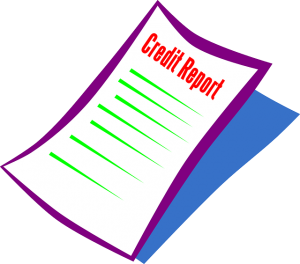
Most people know that each credit agency is legally required to provide you with a free copy of your credit report once per year. The widely recommended practice is to set up a four-month rotation where you check one agency each time (e.g., TransUnion in January, Equifax in May, and Experian in September — and then repeat each year). To get your free annual credit report, you should go to the official site and avoid other lookalike sites which might try to sell you monitoring services or credit score access.
In addition to this strategy, there are many other free ways to obtain your credit reports more frequently and/or monitor for changes in your report automatically.
- Credit Karma (free) provides copies of your TransUnion and Equifax reports at any time. They update the reports every seven days. My best practice is to log into Credit Karma once a month and take a peek at my VantageScore (similar to FICO score) and “Credit Factors”, even if I don’t look at the full report. Credit Karma does a great job of explaining the credit factors that influence your credit score, so you can take steps to improve it. The site will also send you an email alert when it detects a change in your credit report.
- If your account at a major website is involved in a security breach, then the breached company often will provide free credit monitoring for at least one year. For example, I received such offers after the Target and Anthem breaches.
- You may already be doing business with a company that provides some sort of free credit monitoring or ID theft protection. For example, I get free monitoring with ProtectMyID (from Experian) via my AAA auto club membership — and also free monitoring with AllClear ID courtesy of my financial advisors.
- Your credit card company most likely provides you with a free copy of your FICO score anytime you log in. Several of my cards offer this, and I make a habit of checking my score every month. If I were to see a big dip in the score, it would alert me that something fishy is going on.
Generally speaking, when it comes to credit report monitoring and ID theft protection, my philosophy is the more the merrier — as long as the services are free. (Just don’t get suckered into paying for a premium service when trying to register for free monitoring.)
Maximize Your Credit Card Rewards
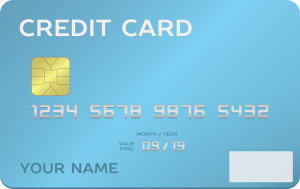
Use the Right Card at the Right Time
For some people, using credit cards increases their chances of overspending and increasing debt. However, if you are disciplined about mindfully spending and paying off your card each month, then credit cards are a great way to build and/or improve your credit score and EARN POINTS.
Out of laziness, I used to put all of my purchases on the same card, since it simplified paying bills and keeping track of charges. However, by doing so, I was getting a much lower average reward rate (just 1% on most purchases).
Now, instead, I use a cheat sheet to help me remember which card to use for each type of purchase, in order to maximize my reward rate. For example:
- Amazon or Whole Foods purchases → Use Amazon Visa → earn 5% (for Prime members)
- Gas → Use Card X → earn 4%
- Restaurant and Travel → Use Card X → earn 3%
- Supermarkets → Use Card Y → earn 3%
- Drug Stores → Use Amazon Visa → earn 2%
- Everything Else → Use Card Z → earn 1.5%
As a case study, the difference between 1% and 3% on travel expenses can be pretty substantial. For a trip costing $3,000 (flight, hotel, meals, etc.), earning $90 vs. $30 is pretty sweet.
Use (Or Don’t Use) Your HSA Debit Card Wisely
If you have a Health Savings Account (HSA), another tip is to pay for your medical charges with one of your regular rewards credit cards and then reimburse yourself later from your HSA account. By contrast, if you pay directly with your HSA debit card, you will lose the points you could have earned on your credit card. In reality, I am usually too lazy to follow this tip (since it involves more financial administrative work), but I do sometimes employ this strategy for particularly large medical expenses.
Practice Travel Hacking
In addition to the strategies above, you can also maximize credit card rewards by practicing Travel Hacking, which is a popular topic on the web. I actually don’t have much experience in this area (as I am reluctant to open a lot of new cards). If you are curious about the technique, Joe Udon at Retire by 40 (one of my favorite FIRE blogs) has a couple of good posts about the topic.
Maximize Points With Your Chase Amazon Visa Card
If you have a Chase Amazon credit card, you should NEVER use your rewards points to pay for purchases and instead should always pay with your card. To redeem your reward points, you should request cash in the form of a statement credit. This Lifehacker post explains why this process is the best for maximizing your reward points.
Avoid International Fees On Your Credit and ATM Cards
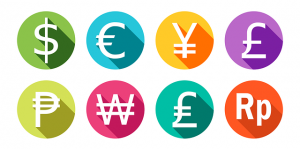
If you travel internationally with any frequency, then hopefully you already know this tip. Many credit cards charge extra fees for international purchases, which can significantly increase the cost of your trip. Likewise, many banks charge extra fees for withdrawals at outside banks (whether domestic or international).
To avoid these fees, make sure that at least one of your credit cards has no foreign transaction fees. The good news is that finding such cards is not difficult. In fact, many of my existing cards have dropped their foreign fees in the last couple of years.
Likewise, for cash, while traveling internationally, open an account with a bank that offers free ATM withdrawals at any ATM machine worldwide. For example, Schwab offers a no-ATM-fee checking account. Even if you do your usual banking elsewhere, it’s great to have at least one such checking account just for travel (which you can fund just before your trip).
Incrementally Organize Your Tax Documents During Year
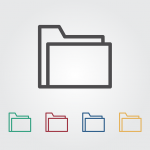
Whether you do your own taxes or pay a tax accountant to do them for you, organizing all of your documents in preparation for completing your federal and state tax returns can be an overwhelming exercise and one prone to mistakes. As your tax situation grows more complicated, it becomes easier and easier to miss something if you wait until the last minute.
In order to minimize the effort and risk of mistakes, I organize my tax records incrementally in real-time as financial events happen over the course of the year. I used to do this in a paper file but now I keep my records and organize them strictly electronically (in a secure, encrypted file system). Once I have received all of my year-end records and the file is complete, I have everything I need to upload to my tax accountant. Some years, I have simply zipped up the folder and delivered it wholesale to my accountant (securely of course).
Project Your Social Security Benefits
When the time comes, hopefully, we’ll all be able to collect our expected social security benefits. But how much is that? In case you didn’t know, you can register for a my Social Security account at https://www.ssa.gov and view your estimated future benefits based on your actual earnings history. This data point can be useful for retirement planning. Keep in mind, however, that conventional wisdom says a good retirement plan should not rely too much on social security and instead treat it as gravy (since the long-term health of the system is in doubt).
Your Turn
I hope the list above proves helpful in at least some small ways — and maybe even inspires you to invent some of your own personal finance hacks. Let me know in the comments.


This is a wonderful article. Few more tips from me:
1. Life insurance is a wise investment.
2. College savings for kids is a cool investment which can at least kick start your kid’s college education or trade course.
3. Personal Investment savings are cool including petty investments for ongoing vacations.
4. Pay off outstanding credit card debts or any high interest debts and utilize balance transfer promo rates. Try not to get into new debt situations.
5. Pay off your car debt and keep an ongoing car maintenance savings.
6. The Biggest Of All; like the mother of all debt; your home mortgage; try to make additional principal payments as when you have additional funds. That reduces the overal interest paid in the mortgage by reducing the time to pay off your mortgage.
7. Manage your finances closely by watching your spending and investments and savings on a spreadsheet every month.
Cheers
Prabhu
Thanks for the additional tips, Prabhu. I didn’t really intend my list to be a comprehensive overview of money management/investment advice, but those are good guidelines you suggest.